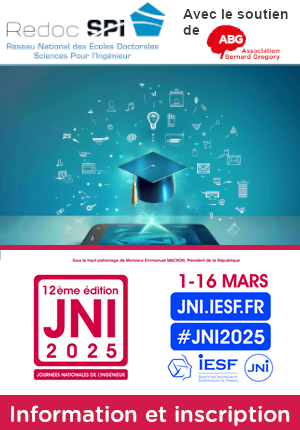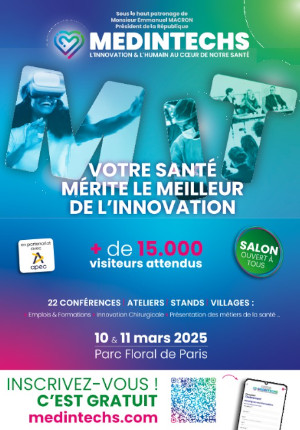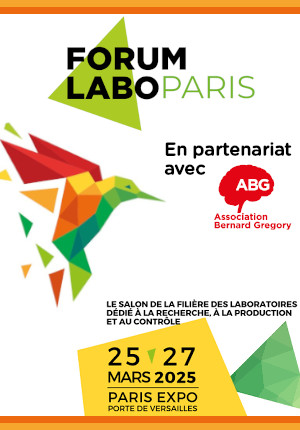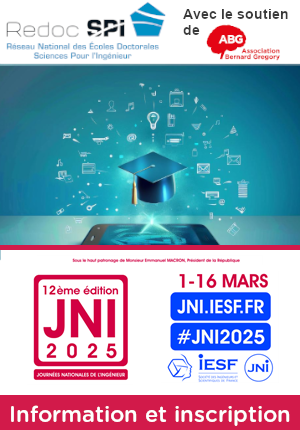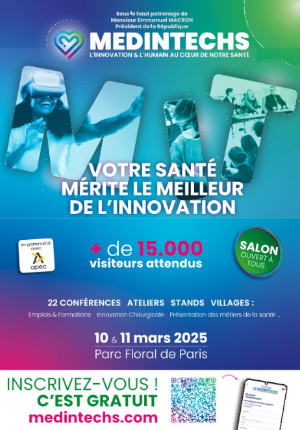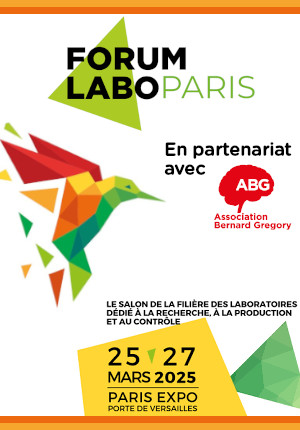Précision fonctionnelle de dispositif médical par l'embarquement de capteurs non-conventionnels, cas d'étude // Embedded non-conventional sensors for a functionally accurate medical device, case study
|
ABG-128741
ADUM-61485 |
Thesis topic | |
| 2025-02-19 | Public funding alone (i.e. government, region, European, international organization research grant) |
Université Grenoble Alpes
GRENOBLE Cedex 1 - France
Précision fonctionnelle de dispositif médical par l'embarquement de capteurs non-conventionnels, cas d'étude // Embedded non-conventional sensors for a functionally accurate medical device, case study
- Electronics
Dispositif médical, capteurs non-conventionnels, précision fonctionnelle, conception centrée usages, Physical Intelligence, Analyse sensorielle
Medical device, Non-conventional sensors, Functional accuracy, User centered design, Physical intelligence, Sensory analysis
Medical device, Non-conventional sensors, Functional accuracy, User centered design, Physical intelligence, Sensory analysis
Topic description
Cette thèse vise à concevoir un dispositif médical innovant intégrant des capteurs non-visuels pour assister le geste chirurgical en mesurant la précision fonctionnelle. En s'éloignant des approches classiques—qui montrent aujourd'hui des limites—basées sur des recalages géométriques et une intelligence centralisée, la recherche explore le concept de ‘physical intelligence' par l'exploitation d'informations sensorielles alternatives (impédance, vibroacoustique, neuromonitoring, etc.) pour concevoir des systèmes plus capacitants pour les cliniciens. Après une étude du geste chirurgical, une analyse de la pratique opératoire et une phase de modélisation, une succession de prototypes sera conçue et évaluée dans le but d'améliorer la précision du geste du professionnel de santé, l'efficacité et le taux de réussite des interventions médicales.
------------------------------------------------------------------------------------------------------------------------------------------------------------------------
------------------------------------------------------------------------------------------------------------------------------------------------------------------------
This thesis aims to design an innovative medical device integrating non-visual sensors to assist the surgical procedures by measuring functional accuracy. Moving away from conventional approaches— which have shown limitations—based on rigid geometric relations and centralized forms of intelligence, this research explores the concept of 'physical intelligence.' This involves leveraging alternative sensory information (impedance, vibroacoustics, neuromonitoring, etc.) to develop more capacitating systems for clinicians. Following a study of surgical gestures, an analysis of operative practices, and a modeling phase, a series of prototypes will be designed and evaluated to improve the precision of healthcare professionals' movements, as well as the efficiency and success rate of medical interventions.
------------------------------------------------------------------------------------------------------------------------------------------------------------------------
------------------------------------------------------------------------------------------------------------------------------------------------------------------------
Début de la thèse : 01/10/2025
------------------------------------------------------------------------------------------------------------------------------------------------------------------------
------------------------------------------------------------------------------------------------------------------------------------------------------------------------
This thesis aims to design an innovative medical device integrating non-visual sensors to assist the surgical procedures by measuring functional accuracy. Moving away from conventional approaches— which have shown limitations—based on rigid geometric relations and centralized forms of intelligence, this research explores the concept of 'physical intelligence.' This involves leveraging alternative sensory information (impedance, vibroacoustics, neuromonitoring, etc.) to develop more capacitating systems for clinicians. Following a study of surgical gestures, an analysis of operative practices, and a modeling phase, a series of prototypes will be designed and evaluated to improve the precision of healthcare professionals' movements, as well as the efficiency and success rate of medical interventions.
------------------------------------------------------------------------------------------------------------------------------------------------------------------------
------------------------------------------------------------------------------------------------------------------------------------------------------------------------
Début de la thèse : 01/10/2025
Funding category
Public funding alone (i.e. government, region, European, international organization research grant)
Funding further details
Concours pour un contrat doctoral
Presentation of host institution and host laboratory
Université Grenoble Alpes
Institution awarding doctoral degree
Université Grenoble Alpes
Graduate school
510 I-MEP² - Ingénierie - Matériaux, Mécanique, Environnement, Energétique, Procédés, Production
Candidate's profile
Titulaire en octobre 2025 d'un diplôme d'ingénieur ou d'un Master 2 (ou un autre diplôme étranger équivalent dans l'enseignement supérieur français) en conception, mécanique, mécatronique ou dans un domaine similaire.
Des compétences en conception (assistée par ordinateur) et fabrication mécatroniques sont requises, des capacités analytiques (modélisation et intégration informatique) sont fortement recommandées. La créativité, le goût pour le travail expérimental et interdisciplinaire sont souhaitables
Holder in October 2025 of an engineering degree or a Master 2 (or another equivalent foreign degree in French higher education) in design, mechanics, mechatronics or a similar field. Skills in (computer-aided) design and mechatronic manufacturing are required, analytical skills (modeling and computer integration) are strongly recommended. Creativity, a taste for experimental and interdisciplinary work are desirable
Holder in October 2025 of an engineering degree or a Master 2 (or another equivalent foreign degree in French higher education) in design, mechanics, mechatronics or a similar field. Skills in (computer-aided) design and mechatronic manufacturing are required, analytical skills (modeling and computer integration) are strongly recommended. Creativity, a taste for experimental and interdisciplinary work are desirable
2025-05-12
Apply
Close
Vous avez déjà un compte ?
Nouvel utilisateur ?
More information about ABG?
Get ABG’s monthly newsletters including news, job offers, grants & fellowships and a selection of relevant events…
Discover our members
 MabDesign
MabDesign  PhDOOC
PhDOOC  Institut Sup'biotech de Paris
Institut Sup'biotech de Paris  Ifremer
Ifremer  ADEME
ADEME  ONERA - The French Aerospace Lab
ONERA - The French Aerospace Lab  MabDesign
MabDesign  ANRT
ANRT  Institut de Radioprotection et de Sureté Nucléaire - IRSN - Siège
Institut de Radioprotection et de Sureté Nucléaire - IRSN - Siège  CESI
CESI  Aérocentre, Pôle d'excellence régional
Aérocentre, Pôle d'excellence régional  SUEZ
SUEZ  CASDEN
CASDEN  Tecknowmetrix
Tecknowmetrix  Groupe AFNOR - Association française de normalisation
Groupe AFNOR - Association française de normalisation  Laboratoire National de Métrologie et d'Essais - LNE
Laboratoire National de Métrologie et d'Essais - LNE  TotalEnergies
TotalEnergies  Généthon
Généthon  Nokia Bell Labs France
Nokia Bell Labs France



